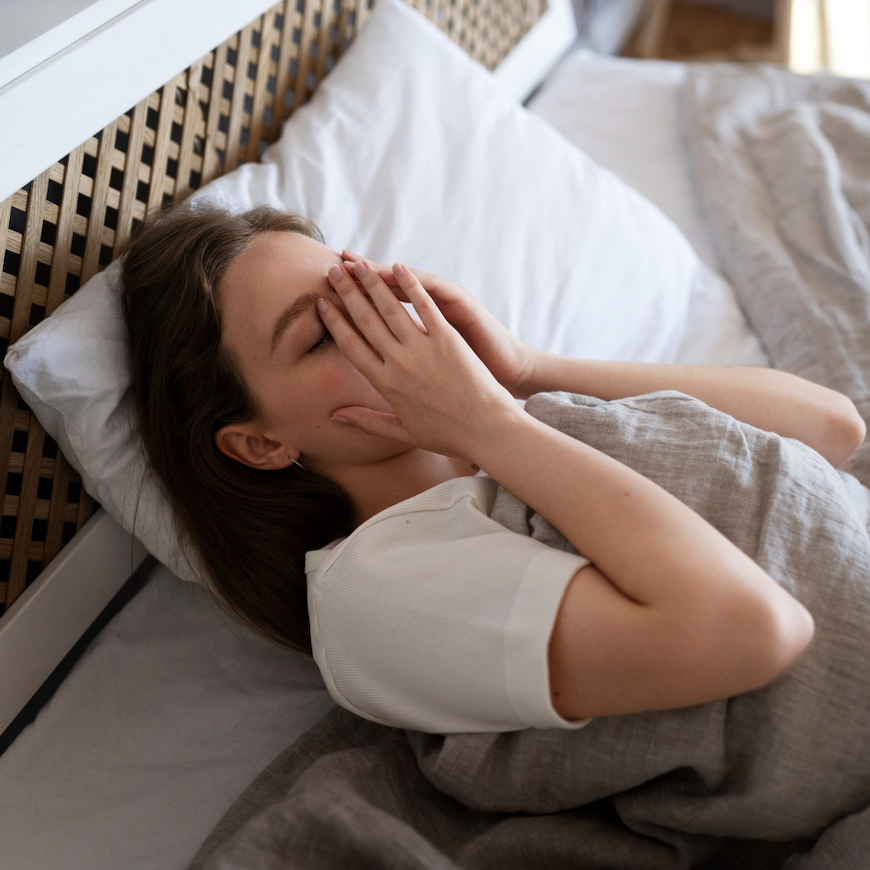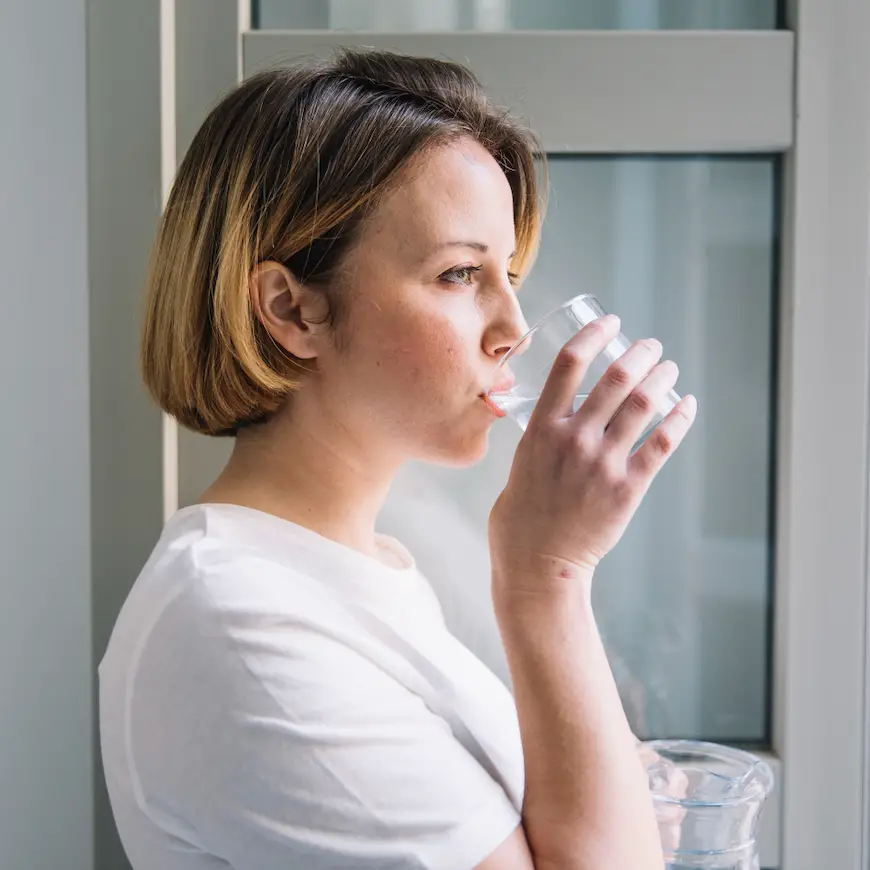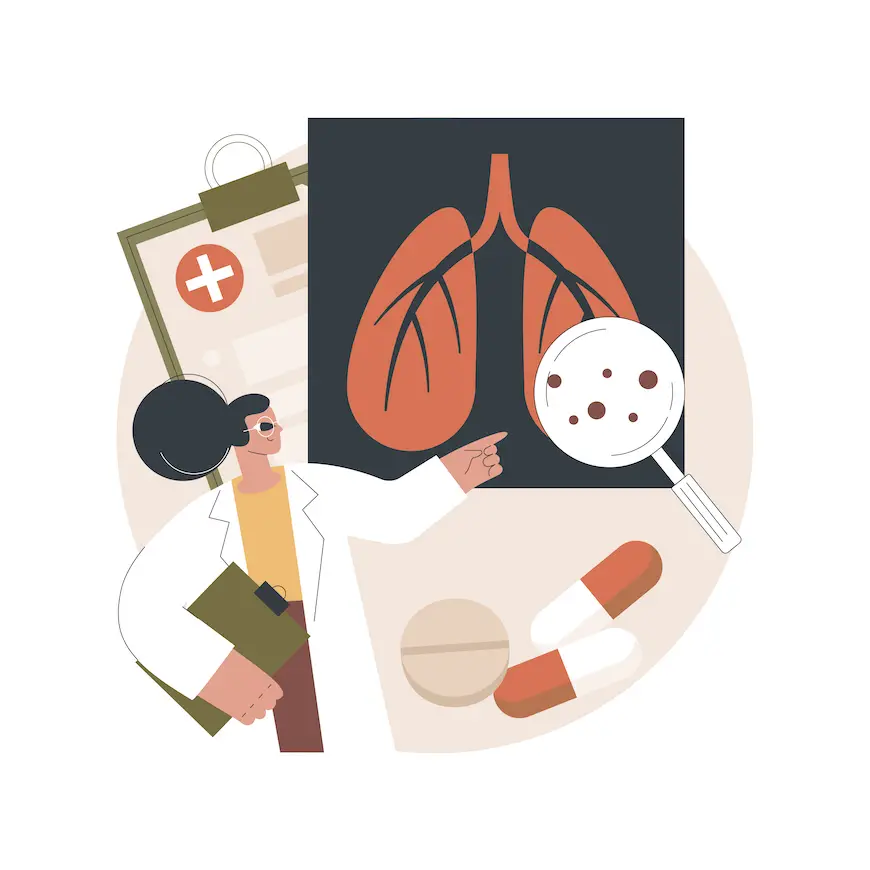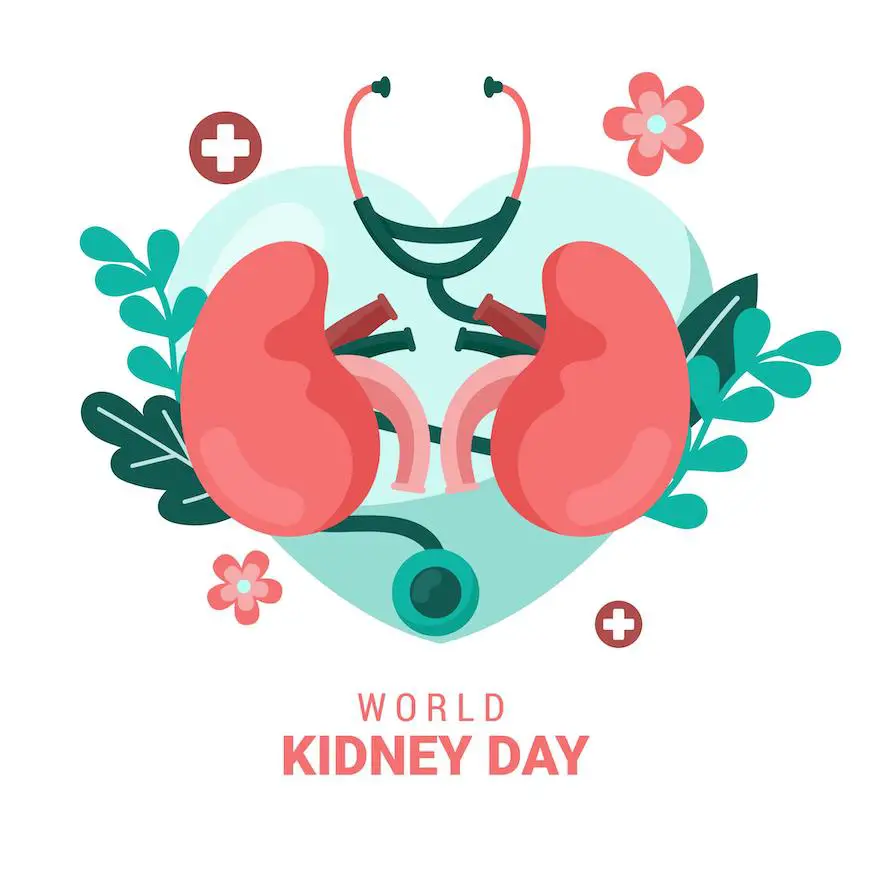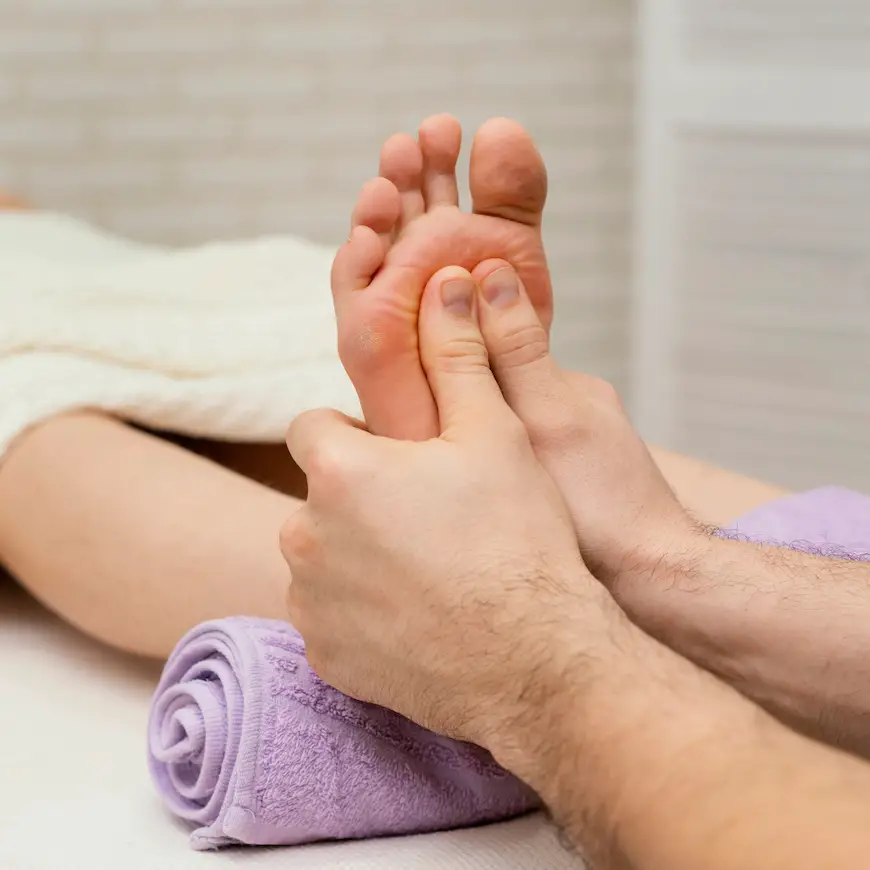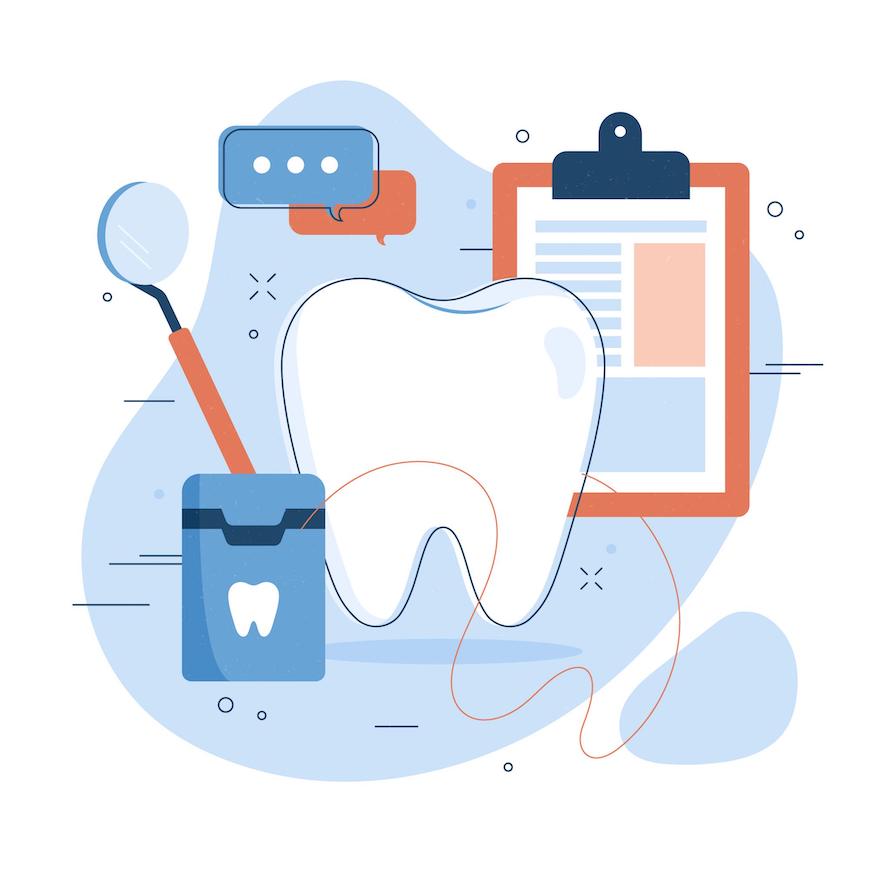Sleep is as essential to our well-being as food and exercise, yet many people struggle to get enough of it. Sleep deprivation has become a widespread issue, affecting millions of Americans and leading to serious health consequences. Whether you’re dealing with restless nights, stress-induced insomnia, or just poor sleep habits, this guide will help you understand sleep deprivation, its effects, and the best ways to overcome it. Plus, we’ll recommend top-rated Amazon products that can enhance your sleep quality.
What Is Sleep Deprivation?
Sleep deprivation occurs when you don’t get enough sleep, either in terms of quantity or quality. The National Sleep Foundation recommends that adults get between 7-9 hours of sleep per night, yet studies show that nearly one-third of Americans fall short of this goal.
Common signs of sleep deprivation include:
- Persistent fatigue during the day – You may feel exhausted even after waking up and struggle to stay awake throughout the day.
- Difficulty concentrating or remembering things – Lack of sleep impairs cognitive function, making it harder to focus on tasks and recall important information.
- Increased irritability or mood swings – Sleep deprivation can affect emotional regulation, leading to moodiness, impatience, and stress.
- Frequent yawning and drowsiness – You may find yourself constantly yawning, feeling sluggish, or even dozing off unexpectedly.
- A weakened immune system – Sleep is crucial for immune function, and prolonged deprivation can make you more susceptible to infections and illnesses.
Causes of Sleep Deprivation
Many factors contribute to a lack of sleep, including:
1. Lifestyle Choices
- Late-night screen use (phones, tablets, or TV) – The blue light emitted from screens suppresses melatonin production, making it harder to fall asleep.
- Consuming caffeine or alcohol too close to bedtime – Caffeine is a stimulant that can keep you awake, while alcohol can disrupt your sleep cycle, leading to poor-quality rest.
- Working long hours or engaging in social activities late into the night – An irregular schedule or late-night commitments can throw off your body’s natural sleep-wake cycle.
2. Stress and Anxiety
- Worrying about work, finances, or relationships can keep your mind racing at night. If you’re constantly overthinking, it can be difficult to relax and drift off to sleep.
- Chronic stress increases cortisol levels, making it harder to relax and fall asleep. High levels of stress hormones keep your body in an alert state, preventing deep sleep.
3. Medical Conditions
- Insomnia, sleep apnea, restless leg syndrome, and chronic pain can disrupt sleep cycles. These conditions make it challenging to fall or stay asleep, leading to fragmented sleep.
- Certain medications may also interfere with sleep. Some prescription and over-the-counter drugs can cause insomnia or affect sleep quality.
4. Poor Sleep Environment
- A noisy or too-bright room can make falling and staying asleep difficult. Light and sound disturbances can prevent deep, uninterrupted sleep.
- A poorly designed mattress or pillow can cause discomfort, making it difficult to stay asleep throughout the night.. If your sleep surface isn’t supportive, you may wake up frequently due to discomfort.
Effects of Sleep Deprivation
Sleep deprivation doesn’t just make you feel tired; it has serious long-term effects on both mental and physical health.
1. Impaired Cognitive Function
- Lack of sleep affects memory, decision-making, and problem-solving skills. Your brain needs to rest to process information effectively.
- Sleep deprivation can impair your reaction times, making you more prone to accidents. This can result in a higher risk of car crashes and workplace injuries due to reduced focus and alertness.
2. Increased Risk of Chronic Diseases
Studies link chronic sleep deprivation to conditions such as:
- Heart disease – Poor sleep can increase blood pressure and inflammation, raising the risk of heart attacks and strokes.
- Diabetes – Sleep deprivation affects insulin sensitivity, leading to a higher risk of type 2 diabetes.
- High blood pressure – Inadequate sleep contributes to hypertension by keeping stress hormone levels elevated.
- Obesity – Inadequate sleep affects hormones that regulate hunger, leading to an increase in appetite and potential weight gain.
Read also: Crohn’s Disease: Symptoms, Diagnosis, and Treatment
3. Mental Health Issues
- Anxiety and depression – Sleep deprivation can worsen symptoms of anxiety and depression or even trigger these conditions.
- Increased stress levels – Poor sleep makes it harder to manage stress, making everyday challenges feel overwhelming.
- Mood swings and emotional instability – Sleep is crucial for emotional regulation, and deprivation can lead to irritability and frustration.
4. Lowered Immune Function
- When you don’t get enough sleep, your immune system weakens. Your body produces fewer infection-fighting cells, making you more prone to illness.
- A lack of sleep has been linked to a higher risk of colds and flu. Rest is crucial for a strong immune response.
How to Overcome Sleep Deprivation
1. Establish a Healthy Sleep Routine
- Try to go to bed and wake up at the same time each day, even on weekends. Maintaining consistency helps regulate your body’s internal clock.
- Create a relaxing bedtime routine (reading, meditation, or gentle stretching). Winding down before bed can make it easier to fall asleep.
- Avoid electronic screens at least 30-60 minutes before bed. Blue light interferes with melatonin production, making it more difficult to fall asleep.
2. Optimize Your Sleep Environment
- Keep your bedroom cool (around 65°F is ideal). A cooler room temperature promotes deeper sleep.
- Consider using blackout curtains or a sleep mask to block out light. Darkness signals to your brain that it’s time to wind down and sleep.
- Reduce noise with earplugs or a white noise machine. This can help drown out disruptive sounds.
3. Improve Your Diet and Hydration
- Avoid heavy meals, caffeine, and alcohol at least 3-4 hours before bedtime. Digesting food or consuming stimulants too late can interfere with sleep.
- Drink a calming herbal tea like chamomile or valerian root. These natural remedies help promote relaxation.
4. Engage in Regular Physical Activity
- Exercise can help regulate your sleep cycle, but avoid vigorous workouts too close to bedtime. Physical activity improves sleep quality, but late-night workouts can be too stimulating.
5. Use Natural Sleep Aids
- Consider taking melatonin supplements to help reset your sleep cycle. Melatonin is a natural hormone that signals your body to sleep.
- Magnesium can help relax muscles and promote deeper sleep. Many people find magnesium supplements beneficial for relaxation.
Sleep deprivation is a serious issue that affects millions of people, but it’s not something you have to live with. By making simple lifestyle changes, improving your sleep environment, and incorporating sleep-enhancing products, you can enjoy deeper, more restorative sleep.
Have you struggled with sleep deprivation? What strategies have worked for you? Share your thoughts in the comments below!
👉Read also: 4 foods before bed for an uninterrupted sleep
